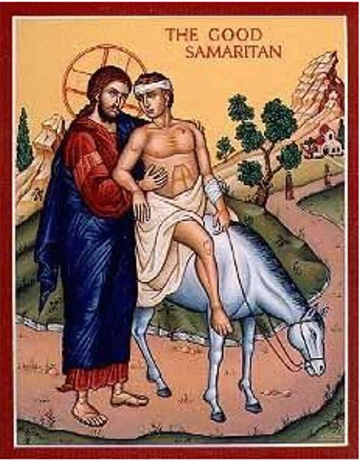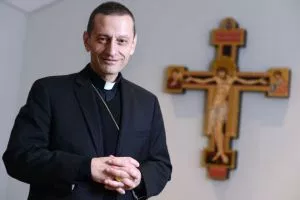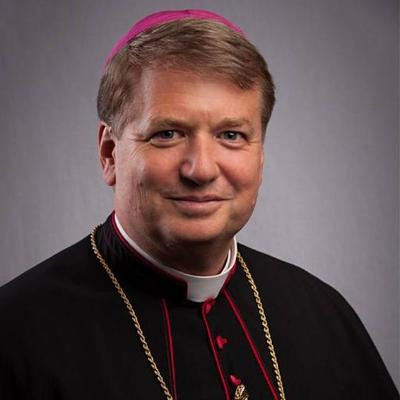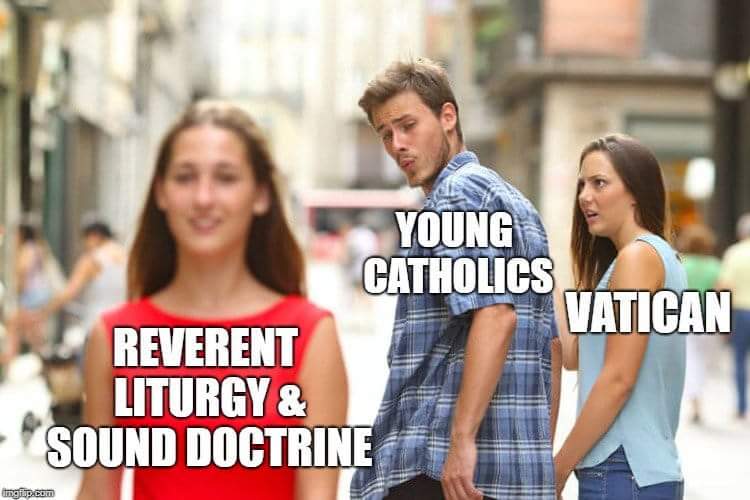
Among our age’s many false dichotomies, the one receiving most attention these days is the contrast proposed between supposedly “rigid” and supposedly “pastoral” approaches toward problems of ongoing sexual sin.
In a dramatic manner, the fallacious character of this dichotomy was torpedoed and exploded on the world scene, in the one tragic biographical narrative of former cardinal Theodore McCarrick.
Over the course of decades, McCarrick took the indulgent, supposedly “pastoral” approach towards his own pathetic sexual proclivities. Of course this was bad for him, for his soul. One of my most fervent prayers is for his sincere repentance and reconciliation with God as his earthly life diminishes. For all we know, this may have happened already, because God’s mercy endures forever. On the other hand, sin hardens the heart and can make repentance difficult. But we can pray, and hopefully he will be saved.
But let us take the wider view. McCarrick was a man who lived in community, and a leader, and he affected others. His sins affected others, and their souls also lie panting along the road from Jerusalem to Jericho. And herein lies the falsity of the dichotomy: indulging McCarrick meant devastation, not pastoral care to others. Indulging one man in a career of sexual sin hurt others. It always does. Indulging remarriage leaves abandoned families, the widows and orphans of the developed world in their millions. Indulging the consumption of pornography leads directly to the trafficking in fresh, photogenic human flesh to be degraded, and captured with a permanent record.
What about their souls? What about the preventably fatherless whose parish priests never aimed for the reconciliation of the family but went straight for the annulment? Where was the pastoral concern for the wife and child left behind and often impoverished, whose images of God the Father are compromised because of their own fathers’ actions?
What about the women? What about the millions of mothers who doggedly worked through their children’s upbringing and had insufficient time and energy to properly raise them or even pray for them?
And what about the even more desperate situations? What about the child prostitutes sacrificed at the altar of adult indulgence at truck stops and online? What about the prostitutes pimped in every city and brought in thousands to every major sporting event? Where is their pastoral care? Who is listening to them?
A falsely “pastoral” indulgence is never victimless, because we live in community. In the case of McCarrick, of course, the damage was multiplied exponentially, not because his appetites were necessarily outsized (see the famous Bell and Weinberg study for more on this), but because he was in a position of high ecclesial leadership.
How can a bishop attend to his threefold mission when he is constantly sinning in a serious way? Letting alone the time it takes from his duties to maintain this sort of sideline hobby, the problem with serious sin is that it takes us out of the connection with charity that is given to us in Baptism and meant to grow with the fruitful reception of the sacraments, including Holy Orders. Charity directs our efforts to go to God and for the sake of others’ journeys to Him. A bishop’s charity belongs in large part to those he serves. Again, what about them? What is to become of a people whose very shepherd commits apparently endless sacrileges against himself and other consecrated persons? Leaving aside the shepherd who lets his people fall prey to the wolves because he is grossly distracted and inattentive, what about the shepherd who is himself a wolf? Will he teach sound doctrine? Will he pray for his flock? Will he care much if they go astray?
And his influence: what will be its results? Will the universities and hospitals under his leadership be beacons of light to the world? Will their goals be religious goals?
And what about his legacy of junior leaders? Will the leaders he appoints–some of them quite young–teach the fullness of the faith? What about the souls of those influenced by them or by him? What about the eternal destiny of these souls?
What would Jesus do? When Jesus saw that the crowds were famished, having spent three days in the wilderness, he charged his apostles with feeding them. That is the job of an apostles: Feed my sheep. Tend my lambs.
What would Jesus do? When Jesus met the Samaritan woman, he made sure she knew that He knew that she had sinned.
What would Jesus do? He forbade not only the sin but the coveting that leads to sin. Looking at a woman is adultery in the heart. Don’t flirt with that married man in the office. Don’t go to lunch with him. Don’t make a pass at your married female colleague in the bar on the business trip. And for God’s sake leave the poor seminarians alone.
What would Jesus do? When Jesus rescued the Samaritan woman from stoning, He told her, “Go and sin no more.”
This is not scolding. It is not “rigid.” Jesus, Whose very name means “God saves,” gives us the hope of finally realizing that beautiful resolution of the Act of Contrition, “sin no more,” for nothing is impossible with God. It can be a long and bumpy road, the path to moral virtue. But what is the alternative? The long and bumpy descent into degradation and sorrow, with the souls and bodies of other people littering the ground around the hell we choose?
God told us to choose life that we and our children might live. That life is ultimately the endless Sabbath that calls us higher and higher. That Sabbath was so important to Jesus, and so trivial to the Pharisees, that whenever he celebrated it in a higher manner, they got mad.
The Sabbath was made for man–for us! The Sabbath: a time of healing, when the long years of weakness are gone and human beings are made whole. Human beings are not “pastored” by keeping them locked in a muddy ditch in the wilderness, mired and preyed upon by wild beasts. The Sabbath gives our lives a goal and a direction, and true pastors lead us there.
Let us run, dear shepherds. Lead us all to the Sabbath of endless light and joy and feasting and goodwill.


 Bishop Frank Caggiano of Bridgeport
Bishop Frank Caggiano of Bridgeport 
